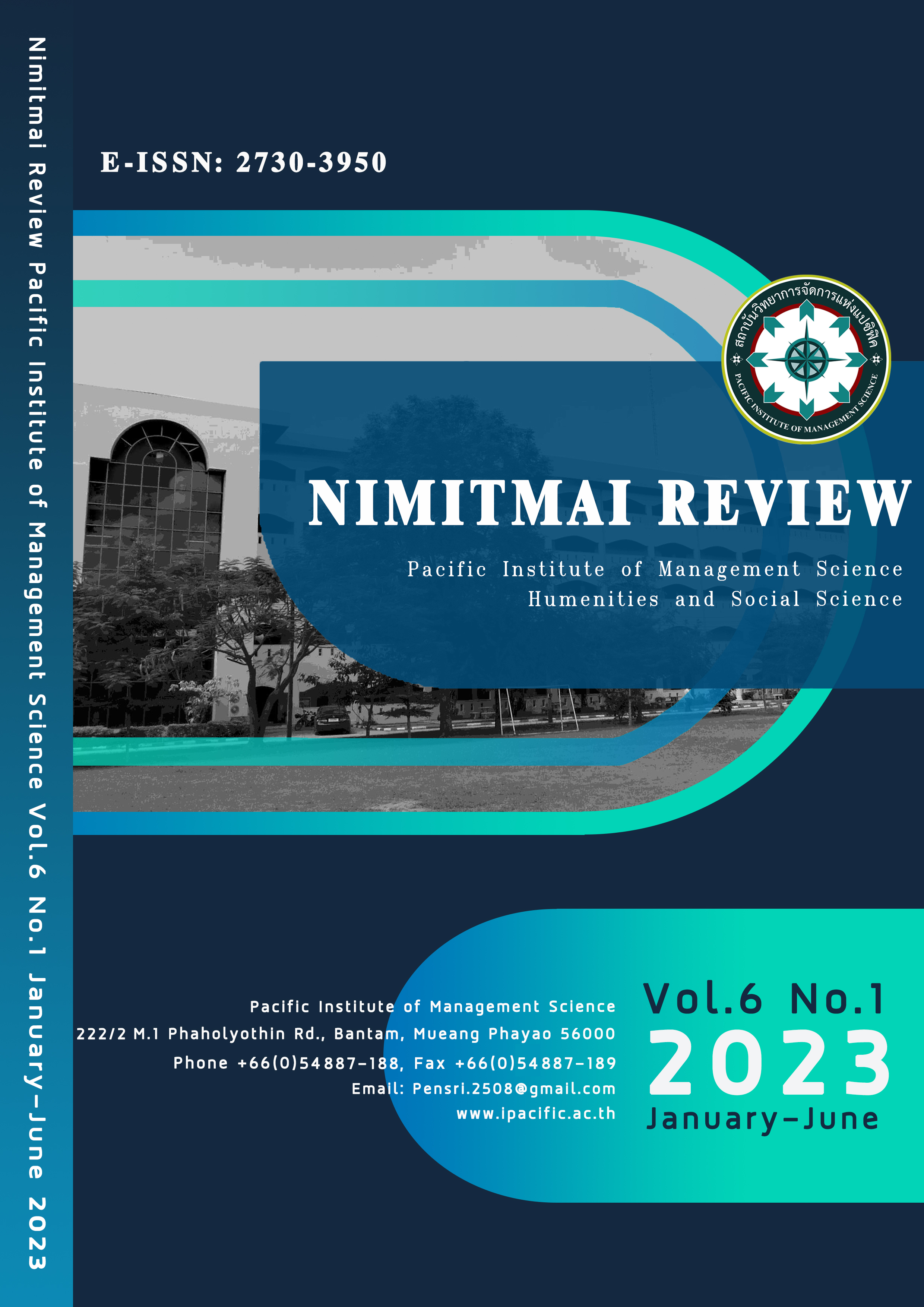Influence of University Students’ Psychological Counseling Trust on The Counseling Effect: A Case of Shanxi Province, China
Keywords:
The psychological Consultation, Psychological Counseling Effect, TrustAbstract
Although psychological counseling is playing an important role in university students' mental health education, there is little research on the effect of psychological counseling on university students. There is even less research on the effect of university students' trust in psychological counseling. The author finds that there is a gap in the research on the trust and effect of psychological counseling for university students. Therefore, the author tries to study this field and discuss the important role of trust in psychological counseling, so as to provide theoretical and practical basis for enhancing the management and effect of psychological counseling. This study adopts the method of convenient sampling, in November 2019 to April 2020, five universities in Shanxi Province of China Counseling center randomly received Counseling of university students, the questionnaire survey to the university students' psychological Counseling Trust Scale (Trust of counseling Scale, TCS) and the Counseling effect self-reported satisfaction Scale respectively evaluate counselors to consulting. Analysis of this research shows that there is a significant correlation between the degree of trust and the effect of psychological counseling among university students, and the ability and credibility of practitioners in the degree of trust are both entered into the regression equation, which well explains the effect of psychological counseling. From the results of correlation analysis and regression analysis, it can be seen that the explanatory power of the four dimensions and the total score in the psychological counseling trust scale for college students on the degree of satisfaction, degree of change and degree of goal achievement in the counseling effect is 38.6%, 36.4% and 41.7% respectively. Among them, the two factors that entered the regression equation were the practitioner's ability and credibility.
References
Bowen, M. (1986). Family therapy in clinical practice. New York: Jason Aronson.
De Borger, B., Kerstens, K., Moesen, W., & Vanneste, J. (1994). Explaining differences in productive efficiency: An application to Belgian municipalities. Public Choice, 80 (3/4), 339-358.
Farrell, M.J. (1957). The Measurement of productive efficiency. Journal of the Royal Statistical Society, 120 (3), 253-281.
Fried, H.O., Lovell, A.K., Schmidt, S.S, Yaisawarng, S. (2002). Accounting for Environmental effects and statistical noise in data envelopment analysis. Journal of Productivity Analysis, 17, 157-174.
Gries, T. & Grundmann, R. (2018). Fertility and modernization: The role of Urbanization in developing countries. Journal of International Development, 30 (3), 493-506.
Gupta, S., & Verhoeven M. (2001). The Efficiency of government expenditure Experiences from Africa. Journal of Policy Modeling, 23, 433-467.
Hughes, T., O'Regan, N., & Wornham, D. (2008). The credibility issue: closing the academic/ practitioner gap. Strategic Change, 17(7-8), 215-233. https://doi.org/10.1002/jsc.828
Hongfei, Y.A. (2002). The achievements and problems of the collegiate psychological Consultation during 1997-2002. Beijing: Beijing Institute of Technology.
Hongfei, Y.A. (2005). Preliminary investigation on the counseling outcome Assessment model. Hangzhon: Zhejiang University.
Hsu, F.M., & Hsueh, C.C. (2009). Measuring relative efficiency of Government-sponsored R&D projects: A three-stage approach. Evaluation and Program Planning, 32 (2), 178-186.
Jemenez, E, & Lockheed, M.E. (1995). Public and private secondary education in Developing countries: A comparative study. Washington, DC: The World Bank. Retrieved from https://eric.ed.gov/?id=ED398122.
Jiangin, F. (1994). Mental health in Taiwan: striving for reformation. Retrieved from https://borgenproject.org/mental-health-in-taiwan/
Joint Research Group of Liaoning Province Finance Department and Northeastern University (2004). Report of comprehensive research on fiscal expenditure Efficiency. Review of Economic Research, 46, 10-29.
Knights & Scarbrough, (2010). In Search of Relevance: Perspectives on the Contribution of Academic—Practitioner Networks, Organization Studies, 31(9–10), 1287–1309. https://doi.org/10.1177/0170840610374398
Koopmans, T.C. (1951). An analysis of production as an efficient combination of Activities. In Koopmans, T.C., editor, Activity analysis of production and Allocation. London: John Wiley and Sons.
Lent, R. W., Brown, S. D., & Larkin, K. C. (1984). Relation of self-efficacy expectations to academic achievement and persistence. Journal of Counseling Psychology, 31 (3), 356–362. Rerieved from https://doi.org/10.1037/0022-0167.31.3.356
Meijing, H., Guangrong, J., & Xu, Z. (2008). Status quo and prospect of counseling Process-outcome research. Wuhan: School of Psychology, HuaZhong Normal University.
Mian, X., & Guangrong, J. (2007). Relationship among attribution, self-efficacy, perceived social acceptance, and help-seeking behavior. Acta Psychologica Sinica, 39 (5), 892–900.
Mingxia, W., Yong, Z. & Wanwen, T. (2001). Progress in the research on the effect of psychotherapy. Journal of Developments in Psychology, 2, 151-156
Newsome, A., Thorne, B.J., & Wyld, K.L . (1973). Student Counselling in Practice. London: University of London Press. 1973.
Österle & Otto, (2010). ntermediaries in the relevance-gap debate: A systematic review of consulting roles, In: 18th European Conference on Information Systems (ECIS 2010)
Prieto, A., Zofio, J. (2001). Evaluating effectiveness in public provision of Infrastructure and equipment: The case of Spanish municipalities. Journal of Productivity Analysis, 15 (1), 41-58.
Research Group of Fujian Provincial City Transport Team, (2005). Research on Quality evaluation system of urbanization. Statistical research, 7, 15-19.
Steven, D., & Brown, C. 1984
Wang, X.R. (2015). The new urbanization policy in China: Which way forward? Habitat International, 47, 279-284.
Xu, L. & Cao, H.H. (2014). From measure to guidance: Galactic model of new-type Urbanization and its evaluation system. Journal of Public Management, 11, 65-74, 140-141.
Ye, Y.M. (2001). Approach on China’s urbanization quality. China Soft Science, 7, 27-31.
Zhu, H.X. (2007). A Measure study on the urbanization quality of Shandong Province. Urban Studies, 5, 37-44.
Downloads
Published
How to Cite
Issue
Section
License
Copyright (c) 2023 Nimitmai Review Journal

This work is licensed under a Creative Commons Attribution-NonCommercial-NoDerivatives 4.0 International License.



